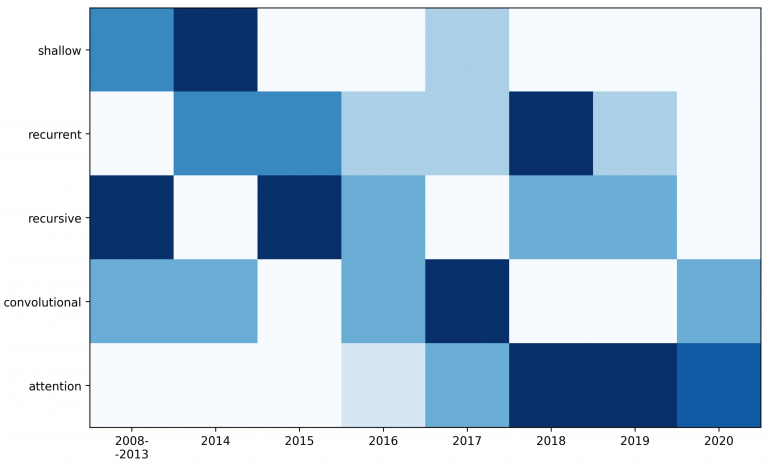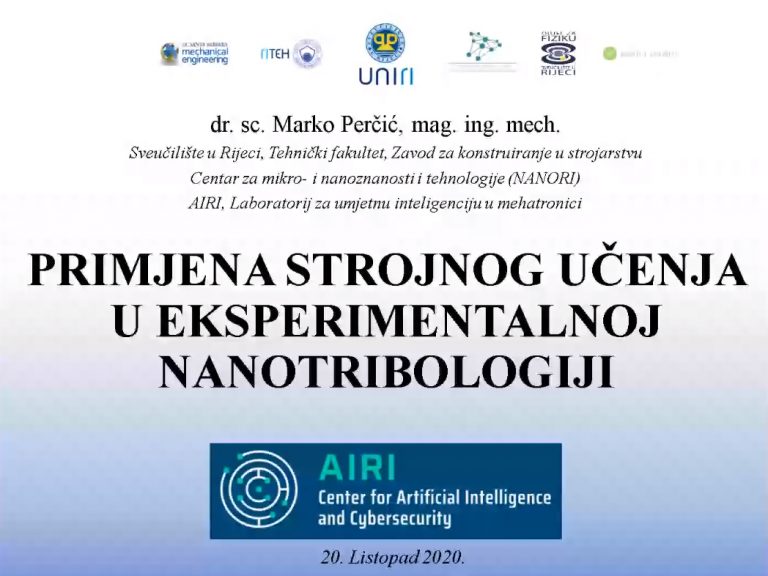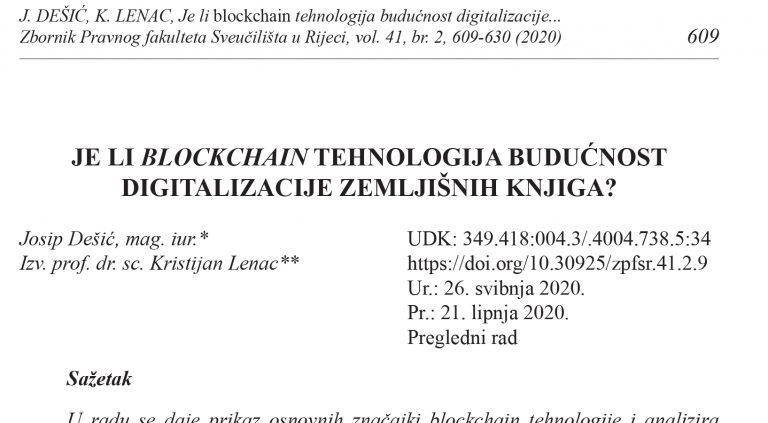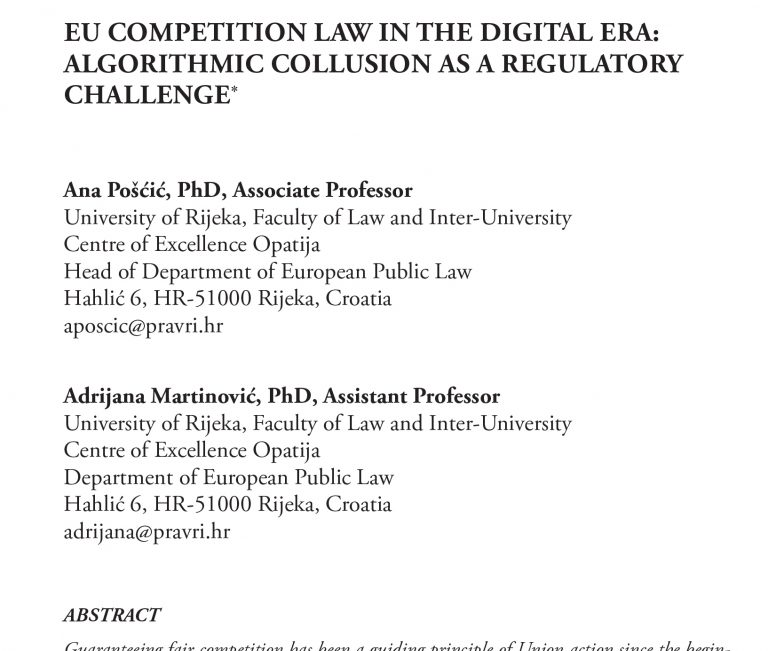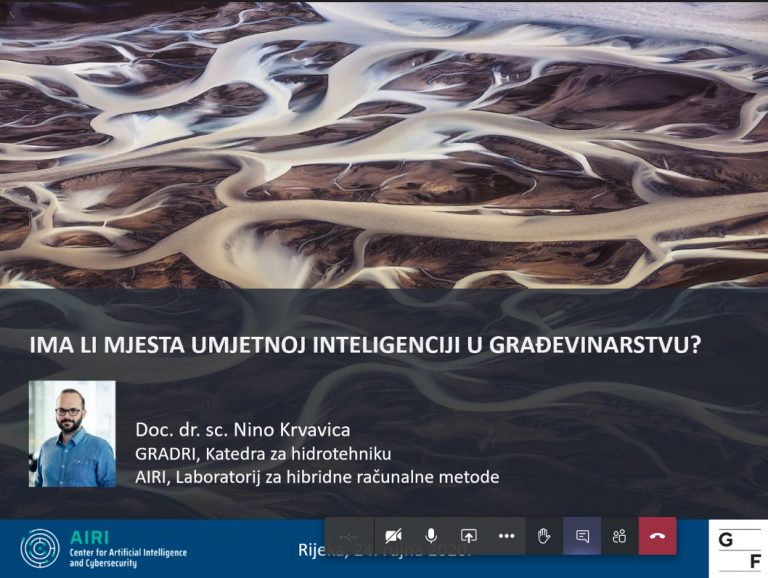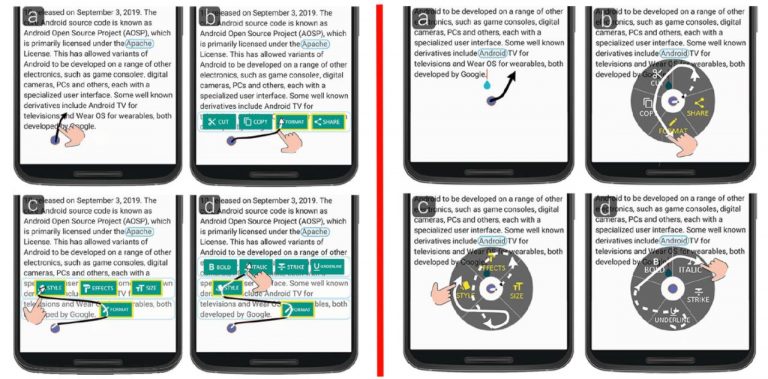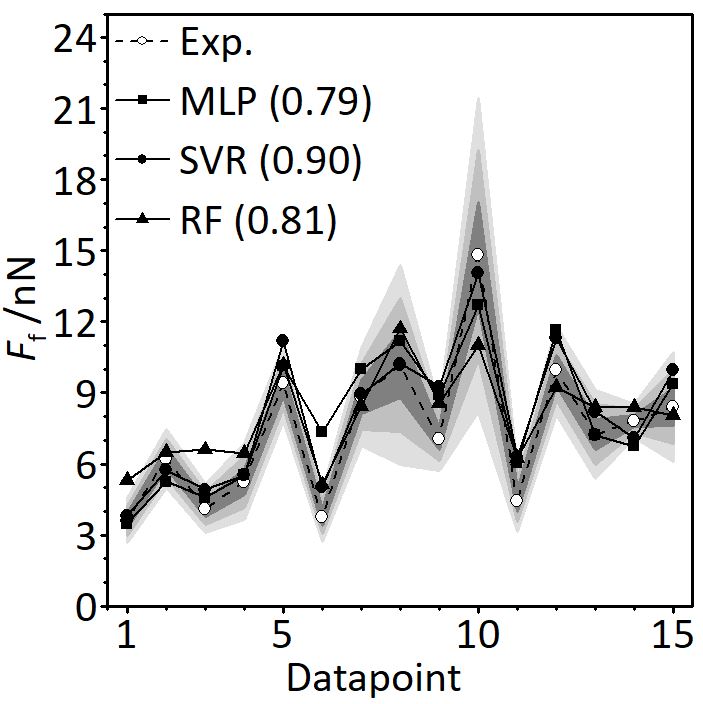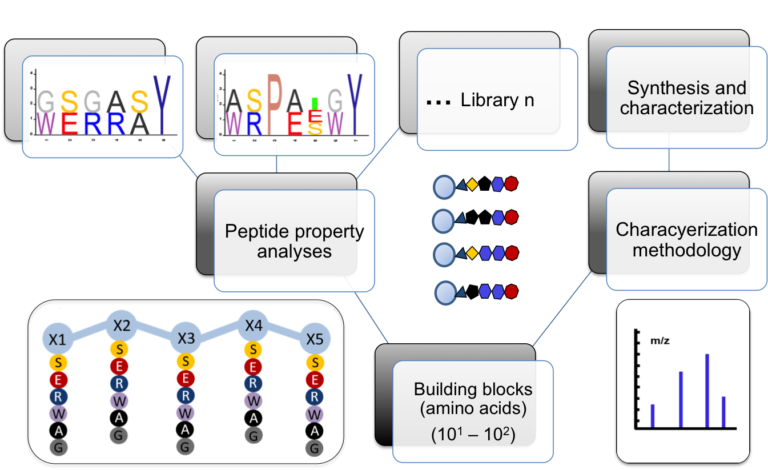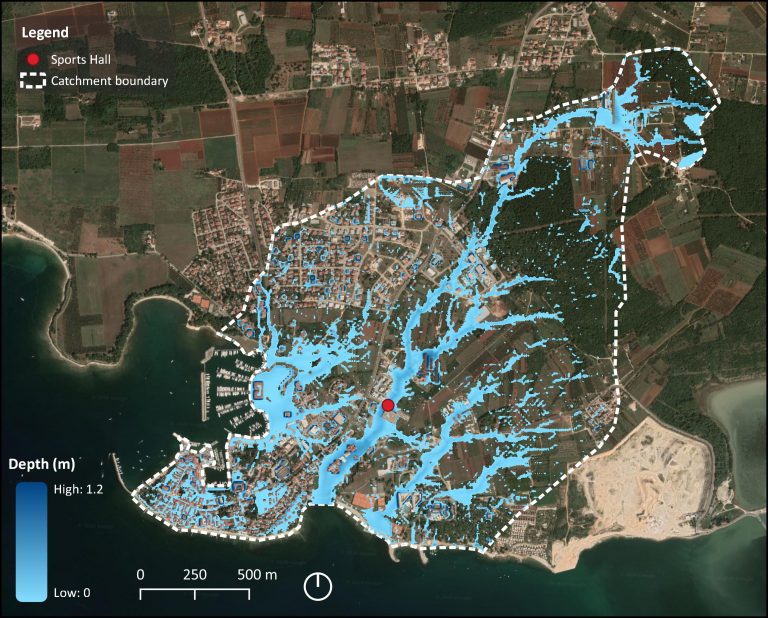In natural language processing, text needs to be transformed into a machine-readable representation before any processing. The quality of further natural language processing tasks greatly depends on the quality of those representations. In this survey, we systematize and analyze 50 neural models from the last decade. The models described are grouped by the architecture of […]
News
Marko Perčić held an presentation on “Applications of Machine Learning in Experimental Tribology”
Dr. sc. Makro Perčić held an interesting presentation on “Applications of Machine Learning in Experimental Tribology” with the presentation of his recent scientific research in the field of nanometrics experimental tribology with application of ML.
Je li blockchain tehnologija budućnost digitalizacije zemljišnih knjiga?
U radu se daje prikaz osnovnih značajki blockchain tehnologije i analizira mogućnost njezine primjene u radu zemljišnih registara. Razmatra se kako blockchain može unaprijediti sigurnost i transparentnost registra nekretnina, osigurati integritet podataka, ubrzati i olakšati prijenos prava na nekretninama i postupak upisa. Navode se primjeri Estonije, koja je najdalje odmakla u primjeni blockchain tehnologije u […]
EU Competition Law in The Digital Era: Algorithmic Collusion As A Regulatory Challenge
Guaranteeing fair competition has been a guiding principle of Union action since the beginnings of the European Economic Community. Anti-competitive activities in the internal market, such as agreements between undertakings, decisions by associations of undertakings and concerted practices which may affect trade between Member States and which have as their object or effect the prevention, […]
Nino Krvavica held an interesting presentation on “Is There a Place for AI in Civil Engineering?”
Assit. prof. dr. sc. Nino Krvavica held an interesting presentation on “Is there a place for AI in civil engineering?” with the presentation of his recent scientific work and open problems in civil engineering which can be solved using ML.
International Conference on Human-Computer Interaction (HCII 2020)
Alen Salkanović presented a paper titled “Floating Hierarchical Menus for Swipe-Based Navigation on Touchscreen Mobile Devices”, at the 22nd International Conference on Human-Computer Interaction (HCII 2020). As a result of the COVID-19 pandemic, the conference could not be held physically (originally scheduled for Copenhagen, Denmark) and was transformed to a virtual format instead. https://doi.org/10.1007/978-3-030-49062-1_34
A supervised machine learning approach to a predictive model of nanoscale friction
Modelling of nanoscale friction presents a long-lasting challenge. In fact, while there are several generalised models that provide good results for macro- and micro-scale friction, due to the complex concurrent physicochemical interactions in nanoscale contacts, when modelling nanoscale friction there is a clear lack of reliable predicting tools. The modelling methodology proposed in this work […]
Bottom-Up Design Approach for OBOC Peptide Libraries
AI RESIDENCIES
The Goethe-Institut engages in intercultural exchange and interdisciplinary discourse within a global context. With the AI Residency Programme we aim to initiate both a dialogue between art and technology and a dialogue reaching beyond the borders of European countries. The programme aims to promote artistic access to developments in the field of artificial intelligence. Art […]
Evaluation of Design Storms and Critical Rainfall Durations for Flood Prediction in Partially Urbanized Catchments
This study investigates and compares several design storms for flood estimation in partially urbanized catchments. Six different design storms were considered: Euler II, Alternating Block Method, Average Variability Method, Huff’s curves, and uniform rainfall. Additionally, two extreme historical storms have been included for comparison. A small, ungauged, partially urbanized catchment in Novigrad (Croatia) was chosen […]
